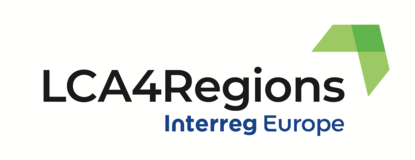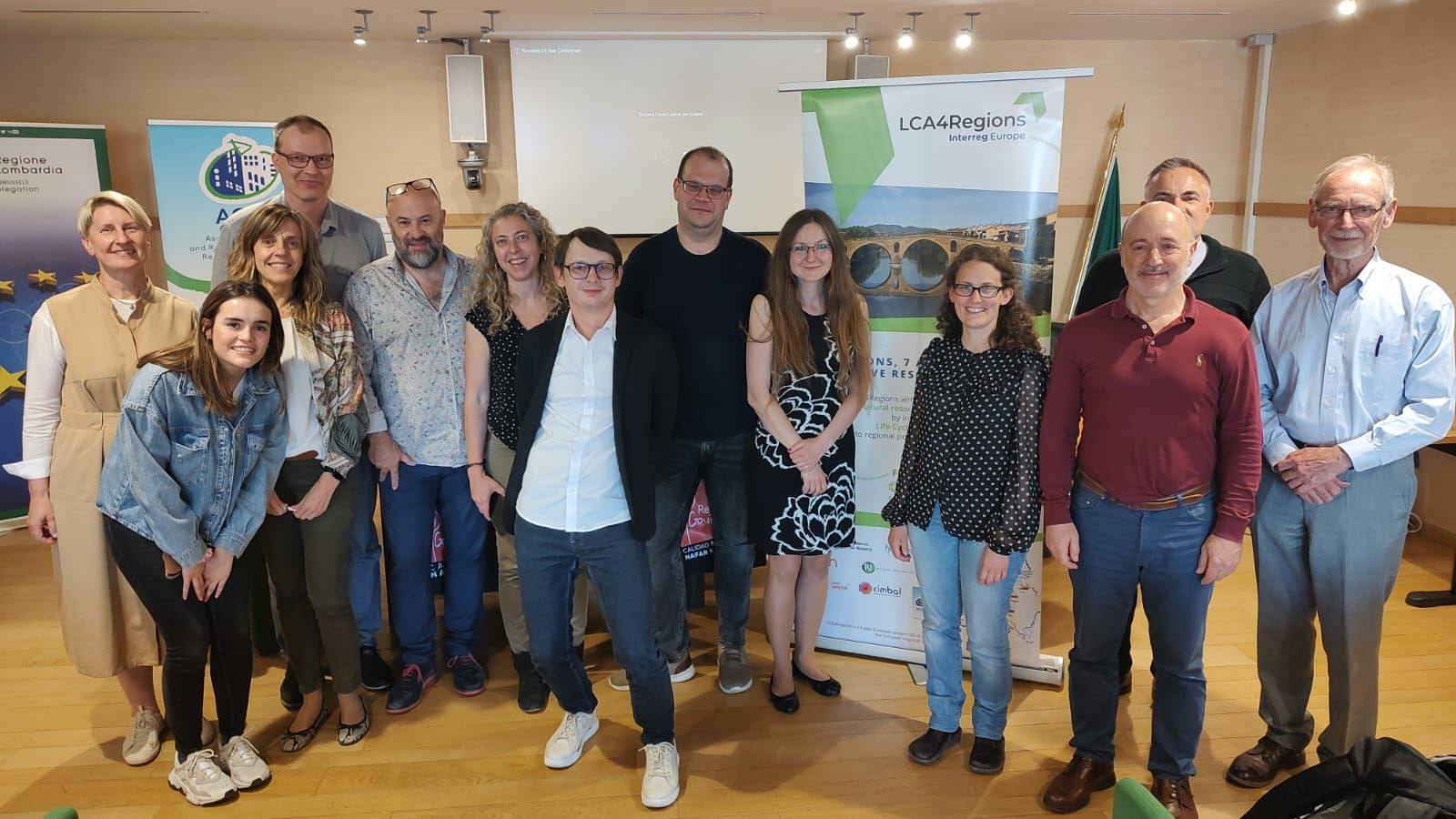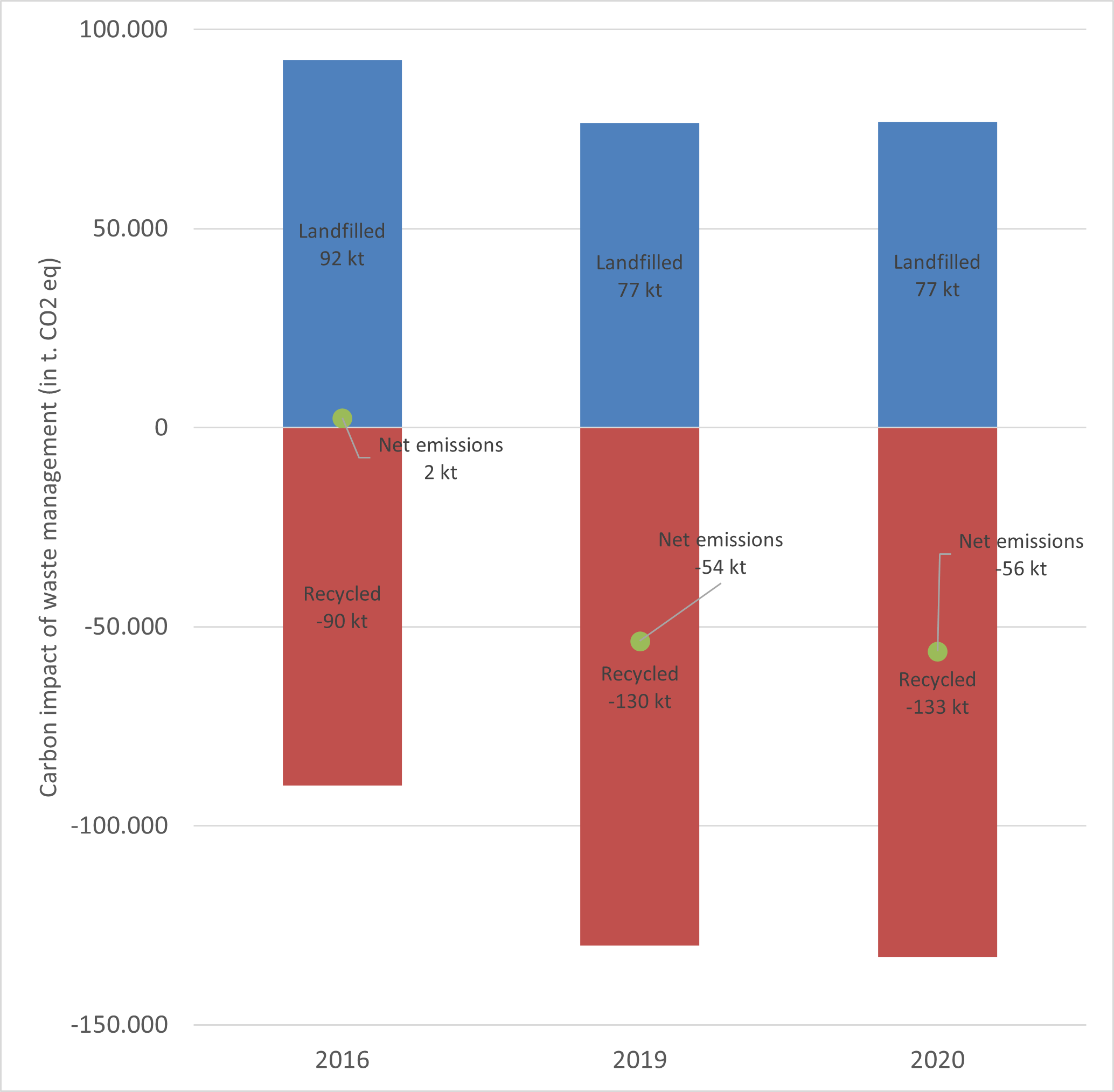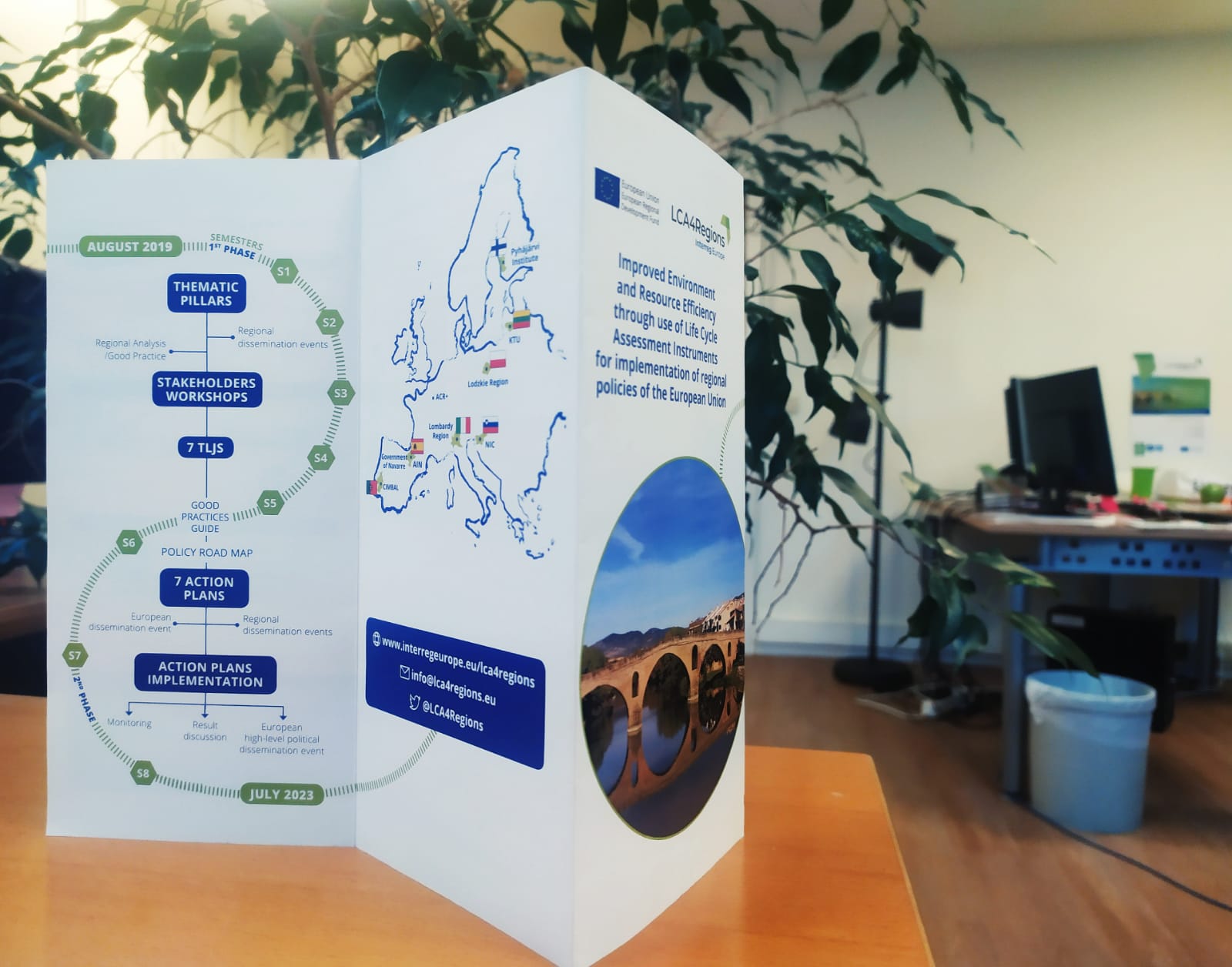The overall objective of LCA4REGIONS is the life cycle-based improvement of policy instruments related to the efficient use of natural resources in regions. Based on this objective each project partner during this second semester delivered a synthetic analysis to communicate the state of the art of local policy making process, presenting local and regional (and national if relevant) context analysis, including deficit and expectations in policy making process, resources exploitation, or investments.
Each region identified the elements for a SWOT analysis, reported the local view of LCA4REGIONS issues, and analysed its policy to identify to what extent it encompasses LCA. They included the analysis of their actual experience on the use of LCA and the evaluation of the supporting environment for LCA studies in the region.
ACR+ carried out a benchmark of these analyses to set a common baseline about the life cycle approaches existing within the project, highlighting opportunities and challenges for achieving the project goals, and to allow the partners to proactively pursue them. By grouping and cross-referencing 7 SWOTs elements of the 7 regions LCA4Regions elaborated an analysis of commonalities in terms of strengths, weaknesses, opportunities, and threats. The conclusions of the analyses led to a final project SWOT analysis that encompasses the most relevant points highlighted by several regions. The cross-analysis of data led to additional criteria that may stimulate the transfer opportunities for good practices.

Between the strengths identified there is a wide range of natural resources and key industrial sectors that could play a role in resource efficiency plans. There is room for strategies in the public procurement pillar and a quite developed LC methodologies theory as well as high interest in LCA.
The availability of data seems to be a general issue: when present they are not comprehensive. There is a need for clearer and unified methodologies, that could help to get structured and comparable information and LC application.
In general, there is an absence of a regulatory framework that foresees the application of LC methods.
Despite the high availability of theory on LC at academic and research level, the regions noticed very low awareness in companies and administrations, and especially a lack of technical specialization on LCA.
LC methods in the regions are sometimes very specific and limited to the assessment of a particular procedure, rather than applied to the whole process. Another element which emerged as a weakness is the absence of long-term criteria for the development of decision making. An issue underlined by several regions is the slowness of the bureaucratic processes.
More cooperation of academics and the industrial sector in strategic specific partnerships could drive the change and encourage companies to invest, as well the creation of databases.
Seeing the low awareness about the benefits and the different applications of LC, making decision-makers, institutions, and organizations aware of the LC potential is crucial. The mobilization of local authorities via existing local channels is fundamental to get successful practical outcomes. Overcoming production inertia is a huge threat that a lot of regions remarked. The most significant threat on which all regions agree is the high cost of LC tools.
The high cost of LCA: a matter of perspective?
A trend that emerged quite clearly is that these tools are perceived locally as very expensive. Besides reinforcing the argument of fiscal incentives to promote LC methods, the project ought to emphasise means to wipe-out this threat. Through its stakeholder network, especially at the local level, the communication effort must focus on the cost/benefits ratio in order to enhance the efficacy of LC instruments and evaluate the long-term return on investments and benefits resulting from the application of LC methods that can justify the cost of certain life cycle tools.
COVID-19: an opportunity?
LCA4Regions partners strongly believe that, right now more than ever, integrating life cycle thinking into regional decision-making is essential. One of the most important results in terms of threats identified is the political inertia: slow political changes in processes seem too hard to transform. The current situation created by the pandemic could be interpreted as the way forward. A lot of production schemes will be forced to convert in order to jump-start the region's GDPs and recover socio-economic indicators in the after-crisis times.
How to make this re-start sustainable? For LCA4Regions this represents a challenge that could become an opportunity in order to make life cycle systems protagonists and drivers of this historical recovery phase.
See more:
- Video (47.20)










